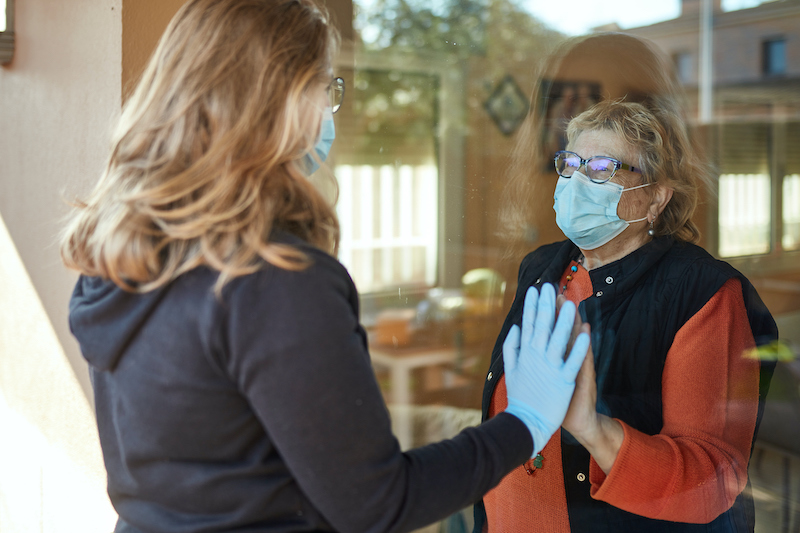
Helping older adults cope with pandemic fatigue is possible with these tips.
It’s been over six months since the COVID-19 pandemic began. The restrictions which have been established to emphasize safety can start to wear on all of us, and while there’s a natural desire to want to “get back to normal,” there is a new worry: helping older adults cope with pandemic fatigue.
Pandemic fatigue comes from wanting to control the numerous intense emotions we have been going through, such as anxiousness, fear, loneliness and isolation, and hopelessness. It’s exhausting and draining, and may present as:
- Problems with getting enough sleep and/or eating appropriately
- Difficulty with focusing
- Withdrawing from people we love
- Becoming more argumentative or having a “short fuse”
- Feelings of nervousness, edginess, and inadequate motivation
- Struggling with racing thoughts
The balance between maintaining the physical health and safety we achieve by self-isolating, along with the emotional health we achieve through socialization and participating in meaningful activities, is not easy to navigate. Our caregivers have some suggestions to help both yourself and the seniors you love:
- Acknowledge and accept your feelings. A wide range of feelings are completely normal in a time that feels anything but normal. It can be helpful to name how you’re feeling – even writing it down. Then see if you can refocus your thoughts to ways to help. As an example, if you are feeling out of control, concentrate your energy on things that you are able to control.
- Modify your inner dialogue. It’s natural to wrestle with a number of negative “what if” scenarios, which produce increased anxiety. Try integrating a positive slant to your questions; for example, rather than thinking, “What if I come down with COVID-19?” tell yourself, “I have been doing everything I can to protect myself and stay safe.”
- Stay connected. While social distancing and staying away from one another has become the new normal, it is crucial to maintain social connections in ways which are safe: telephone calls, emailing and chatting on social media, writing letters, and using technology for virtual get-togethers, classes, religious services, etc.
- Turn off the news. It is important to ensure you’re updated on the current recommendations, guidelines, and status of the virus, but it’s also easy to quickly become overwhelmed with too much information. Try to curb your news watching to no more than an hour or so daily, and make sure the source you’re getting information from is reliable.
- Take care of yourself. Develop a routine which includes at least seven hours of sleep per night, 30 minutes of exercise daily, and a healthy diet. You will be aiding both your emotional state and your immune system by simply making good lifestyle choices.
Abby Senior Care, providers of home care in Cherry Hills Village and the surrounding communities, is always here to partner with you in providing dependable, trusted home care. Our home care services are provided in the safety and comfort of home, helping senior loved ones increase emotional, physical, and social wellbeing. Whether the need is for just a few hours each week of respite care to allow family caregivers to rest and recharge, or as much time as needed, up through and including full-time care, reach out to us at 303-699-8840 and let us know more about how our top-rated home care in Cherry Hills Village and surrounding communities can help.
